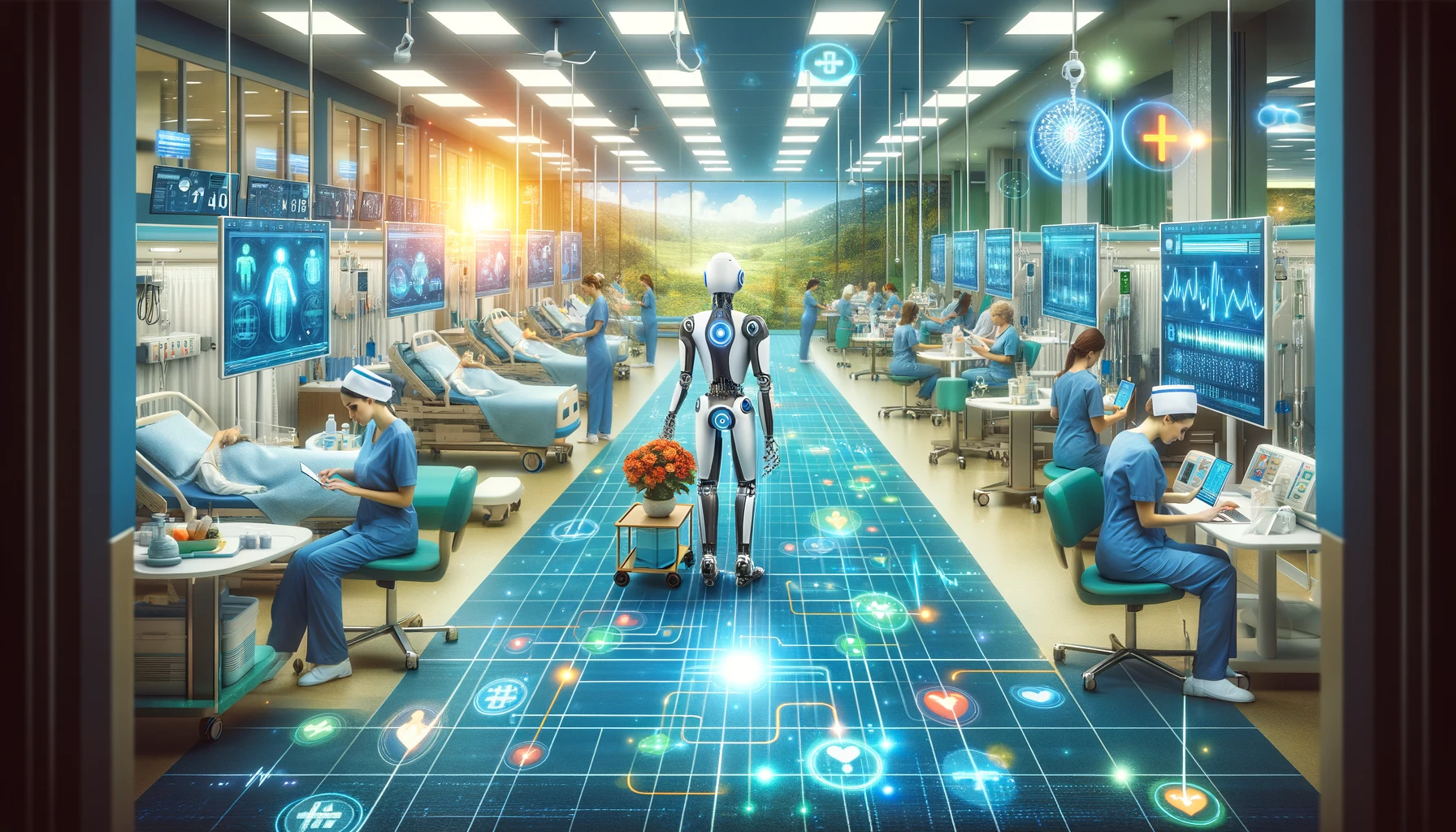Discover how artificial intelligence is transforming nursing in the NHS, improving patient care, and addressing labor challenges.

In today’s fast-paced world, where technology and healthcare intersect, a groundbreaking transformation is underway. Imagine a scenario where your nurse is not only equipped with a stethoscope and a comforting smile but also with an AI assistant that helps make your care even more personalized and efficient. Sounds like something out of a sci-fi novel, right? But it’s becoming our new reality. Let’s dive into how artificial intelligence is revolutionizing nursing within the NHS, making healthcare more responsive, efficient, and human-centered than ever before.
The AI Revolution in Healthcare
Have you ever thought about how artificial intelligence might change the game in healthcare? AI in healthcare is like having a super-smart friend who can sift through information at lightning speed, make predictions, and even learn from its experiences. This revolution is not about replacing humans but enhancing their abilities to provide unparalleled care.
AI: A Nurse’s New Best Friend
Imagine nurses having an extra pair of hands, one that never tires and is always ready with data-driven insights. AI technologies, from chatbots that can triage patient inquiries to systems that monitor patient health in real-time, are becoming invaluable assets in nursing. They’re like the Robin to every healthcare Batman, providing support wherever needed.
Enhancing Patient Care with AI
AI tools are not just fancy gadgets; they’re transforming patient care. By analyzing vast amounts of data, AI can identify trends, predict health risks, and even suggest personalized treatment plans. This means patients receive care that’s not just a one-size-fits-all solution but tailored specifically to their needs.
The Human Touch in AI Healthcare
One might wonder, with all this tech, where does the human touch fit in? Well, AI in healthcare isn’t about removing the human element but amplifying it. Nurses can spend less time on paperwork and more time where it counts: with their patients. It’s about strengthening that irreplaceable human connection, not diminishing it.

Addressing Labor Challenges
The healthcare sector, especially the NHS, faces significant labor challenges, from staffing shortages to burnout. AI steps in as a force multiplier, easing the burden on healthcare professionals and allowing them to focus on what they do best—care for patients.
Training for the Future
As we embrace AI, training healthcare professionals to work alongside AI technologies becomes crucial. It’s like learning to drive a new, more advanced car. The fundamentals of care remain, but the tools and techniques evolve.
Ethical Considerations
With great power comes great responsibility. Integrating AI into healthcare raises important ethical questions, from data privacy to decision-making processes. Navigating these challenges requires a balanced approach, ensuring technology serves humanity, not the other way around.
The Impact on Patient Outcomes
The ultimate goal of integrating AI into nursing is to improve patient outcomes. Early evidence suggests that AI can help reduce errors, speed up diagnosis, and even lower hospital readmission rates. It’s a win-win for both patients and healthcare providers.
Looking Ahead: The Future of AI in Nursing
The future of AI in nursing is not just promising; it’s already unfolding. As we continue to innovate and integrate AI technologies, the role of nurses will evolve, becoming even more impact. The potential is limitless, from remote patient monitoring to advanced diagnostic tools.
Conclusion
The integration of AI in healthcare, particularly in nursing within the NHS, is not just a fleeting trend but a significant leap towards a more efficient, responsive, and patient-centered healthcare system. It’s about enhancing the capabilities of our nurses, improving patient care, and addressing the pressing challenges facing the healthcare sector today. The future of nursing is bright, with AI lighting the way.

FAQs
1. Will AI replace nurses?
Absolutely not! AI is here to enhance the capabilities of nurses, not replace them. It’s about supporting healthcare professionals to provide the best care possible.
2. How does AI improve patient care?
AI improves patient care by providing personalized treatment recommendations, predicting
health risks, and allowing for real-time health monitoring, ensuring patients receive timely and tailored care.
3. What are the ethical considerations of using AI in healthcare?
Ethical considerations include ensuring patient data privacy, transparent decision-making processes, and maintaining the human element in patient care amidst technological advancements.
4. Can AI address healthcare labor challenges?
Yes, AI can significantly ease the burden on healthcare professionals by automating routine tasks, reducing burnout, and allowing them to focus more on patient care.
5. How is AI being trained to work in healthcare?
AI systems are trained using vast amounts of healthcare data and through collaboration with healthcare professionals to ensure they complement the human aspect of patient care effectively.
Sources The Guardian


